In the realm of mysterious phenomena, the Mandela Effect is one, named after the legendary political figure Nelson Mandela, this mind-bending phenomenon challenges the very fabric of our memories and, raises questions about reality.
Are we living in a world where our recollections can deceive us, or is there something more extraordinary at play? In this article, we delve deep into the Mandela Effect, exploring its origins, possible explanations, and mind-boggling examples that continue to confound us.
Let’s delve deeper into what is the Mandela effect like and learn some of its popular examples!
Related: Understanding Deja Vu: The Mystery Of Time Explained
What Is The Mandela Effect?
It refers to a peculiar phenomenon wherein a large group of people shares a false collective memory. It involves the misremembering of specific events, details, or even cultural elements that seem to differ from what historical records or evidence suggest.
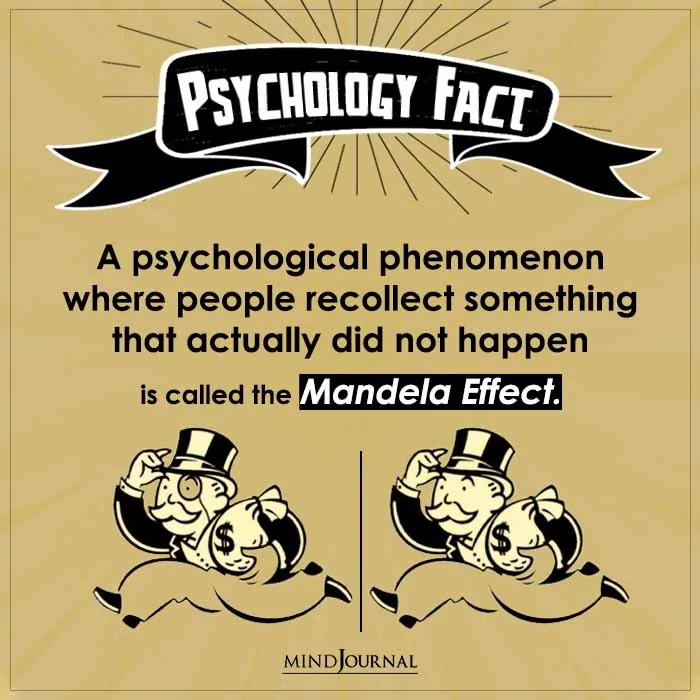
The term gained popularity in 2010 when many people vividly recalled Nelson Mandela dying in prison during the 1980s, despite his actual release and subsequent presidency in South Africa.
Why Is The Mandela Effect Happening? Psychology Behind It
While there isn’t a definitive explanation for why the Mandela Effect is happening, several psychological factors may contribute to its occurrence. Let’s explore a few compelling explanations:
1. Confabulation
It refers to the creation of false memories without the intention to deceive. Our brains have a tendency to fill in gaps in our recollections with plausible but incorrect information. This can contribute to shared false memories and experiences.
2. False Memories and Cognitive Biases
Human memory is fallible, susceptible to distortions, and influenced by cognitive biases. Our brains often fill in gaps in our recollections with familiar or expected information. This tendency can lead to the creation of false memories, which, when shared collectively, give rise to this effect
3. Cognitive Biases
Cognitive biases are inherent shortcuts or patterns in human thinking that can distort our perception of reality. Confirmation bias, for example, leads us to seek out information that confirms our existing beliefs while disregarding contradictory evidence. Cognitive biases can contribute to the reinforcement and spread of shared false memories.
4. Information Overload
In the age of the internet and rapid dissemination of information, we are exposed to a vast amount of data daily. This information overload can lead to processing errors and misinterpretations, potentially fueling the occurrence of this effect as misinformation spreads quickly.
5. Mass Misinformation and Pop Culture
In the age of the internet and social media, misinformation spreads rapidly. Pop culture references, shared urban legends, and media portrayals can contribute to the formation of false collective memories. These shared cultural narratives might perpetuate incorrect information, leading to this effect.
6. Artificial Intelligence
As AI technology becomes more advanced, some suggest that it could be responsible for manipulating our memories or altering historical records, leading to this effect.
7. Multiverse Theory
This isn’t a psychological theory but one possibility is that this effect could be a consequence of parallel universes or alternate realities intersecting with our own.
According to this theory, slight divergences in these parallel dimensions lead to different historical events, resulting in discrepancies in our memories.
Related: 12 Dreamlike Perceptions Causing You Anxiety and Depression
Captivating Examples of the Mandela Effect:
In the latest wave of new Mandela Effect examples and old ones too, let’s take a look at them:
1. Mirror On The Wall
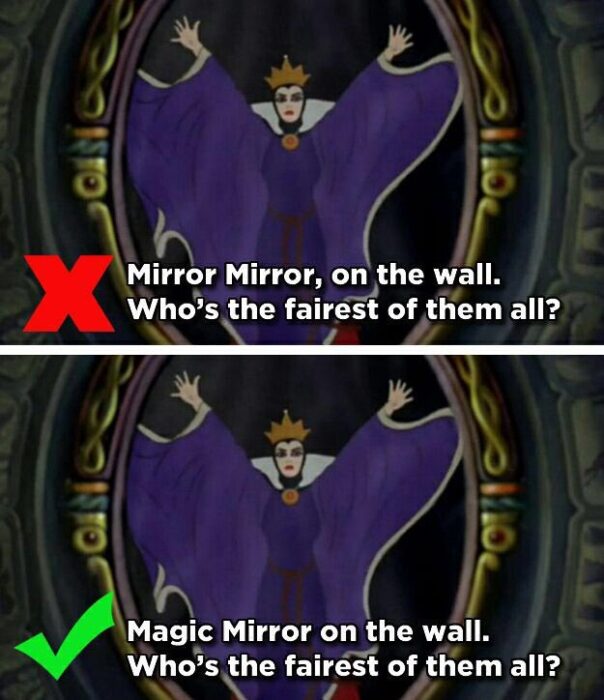
You may think to yourself, “Is the Mandela effect real?” The iconic quote from the film “Snow White” is often misremembered as “Mirror, mirror, on the wall, who is the fairest of them all?”
However, the accurate line spoken by the evil queen is “Magic mirror on the wall.”
2. Curious George’s Tail

A significant number of individuals recall the mischievous monkey Curious George having a long, swaying tail. Surprisingly, Curious George has never had a tail, as confirmed by the original book series.
3. Pikachu’s Tail
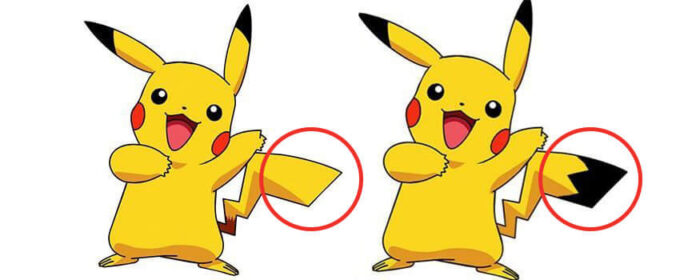
Many people vividly remember Pikachu, the popular Pokémon character, having a black-tipped tail. However, if you examine official Pikachu artwork and merchandise, you’ll discover that the character’s tail is entirely yellow, without any black at the end.
4. Sex in the City vs. Sex and the City

The hit television series that followed the lives of four women in New York City is commonly misremembered as “Sex in the City.” However, the correct title is “Sex and the City.”
5. The Hyphen Mystery of Kit Kat

This is one of the new Mandela Effect examples that will strike you with an existential crisis when you realize the absence of a hyphen between “Kit” and “Kat” in the popular chocolate brand’s name. Are you puzzled, well, you’re not alone in this puzzling revelation.
6. The Elusive Casablanca Quote: “Play it again, Sam”
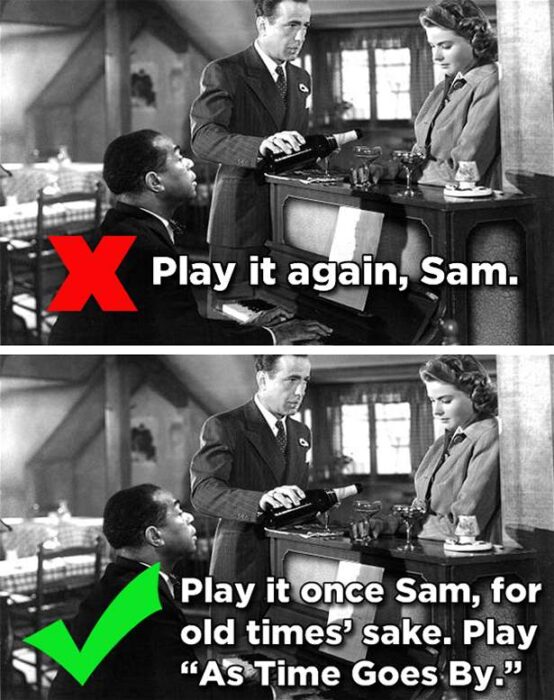
Casablanca, a cinematic classic, is known for its unforgettable lines. However, the iconic phrase “Play it again, Sam” is a misquotation.
Ingrid Bergman’s character actually utters the words, “Play it once, Sam. For old times’ sake.” It’s a subtle discrepancy that has left fans scratching their heads.
7. Forrest Gump’s Sweet Misquote
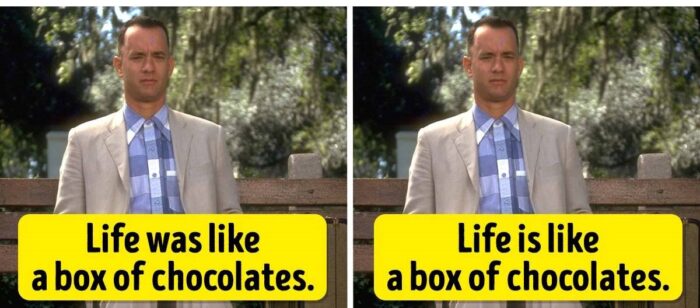
Forrest Gump, portrayed by the incredible Tom Hanks, is known for his pearls of wisdom. But if you pay close attention, he actually says, “Life was like a box of chocolates.”
It’s a small alteration that has made us reconsider all those Instagram captions we wrote with the misquoted phrase.
8. The Temporal Shift of “I’m so 2008…”
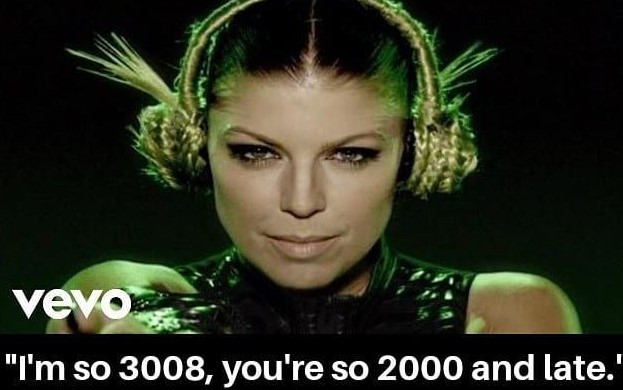
In the realm of music, the Black Eyed Peas hit single “Boom Boom Pow” caused a temporal conundrum. While some insist it was released in 2008, the truth is it actually came out in 2009.
Fergie’s lyrics don’t declare, “I’m so 2008/You’re so 2000 and late,” but rather, “I’m so 3008/You’re so 2000 and late.” Prepare to have your mind blown by this unexpected twist.
9. Looney Tunes, Not Toons

The Looney Tunes is a beloved animated franchise that has captured the hearts of audiences for generations.
However, there is an interesting twist when it comes to the spelling of its name. Many people vividly remember it as “Looney Toons” instead of the actual spelling, “Looney Tunes.”
10. Mona Lisa’s Smile
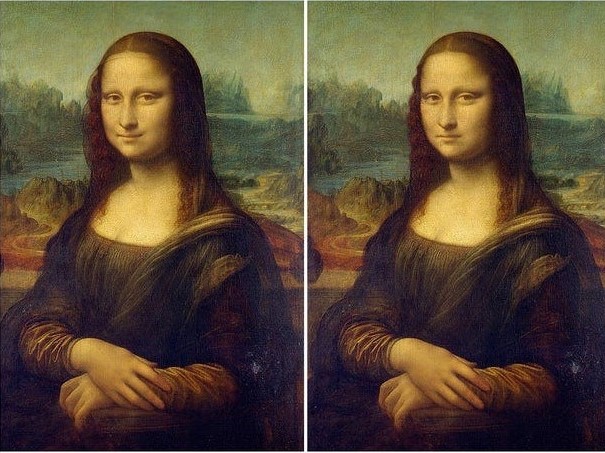
The Mona Lisa’s Smile is an intriguing phenomenon where people recall the famous painting’s enigmatic smile being different. Some remember her smiling more distinctly, while others recall a more subtle expression, challenging our perception of this iconic masterpiece.
So, Is The Mandela Effect Real?
Examples of the Mandela Effect continue to captivate and perplex us, challenging our understanding of memory, perception, and reality. Whether it’s the interplay of parallel universes, cognitive biases, or mass misinformation, its existence fuels endless speculation and intriguing discussions.
As we delve deeper into the mysteries of the human mind, this effect serves as a fascinating reminder of the complexities that lie beneath our conscious recollections.
Why is the Mandela Effect happening and whether it is real or not is still a topic of debate. But one thing’s for sure, it’s definitely a mind-bending phenomenon that makes us question the reliability of our memories and perceptions.
Related: What Is Déjà Rêvé? Why It Is Creepier Than Déjà Vu
In a world where truth and memory can sometimes blur, it compels us to question what we think we know and embrace the boundless wonders of our collective consciousness.
Frequently Asked Questions (FAQs)
What is an example of collective false memory?
The Mandela Effect showcases “collective false memory,” where a large group misquotes sayings or recalls events in a shared, yet incorrect manner, challenging our perception of collective memory.
What is Visual Mandela Effect?
The visual Mandela Effect refers to instances where people collectively misremember visual details, such as logos or famous images, differing from the actual representation.
What is a famous case of false memory?
A famous case of false memory is the misremembered line “Luke, I am your father” from Star Wars, which is actually “No, I am your father.”
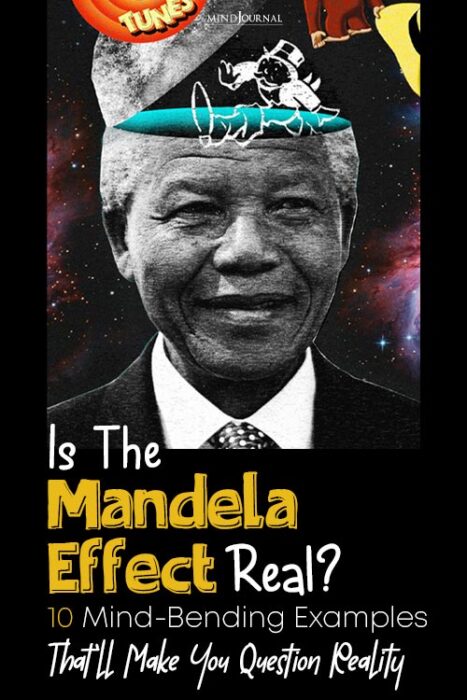
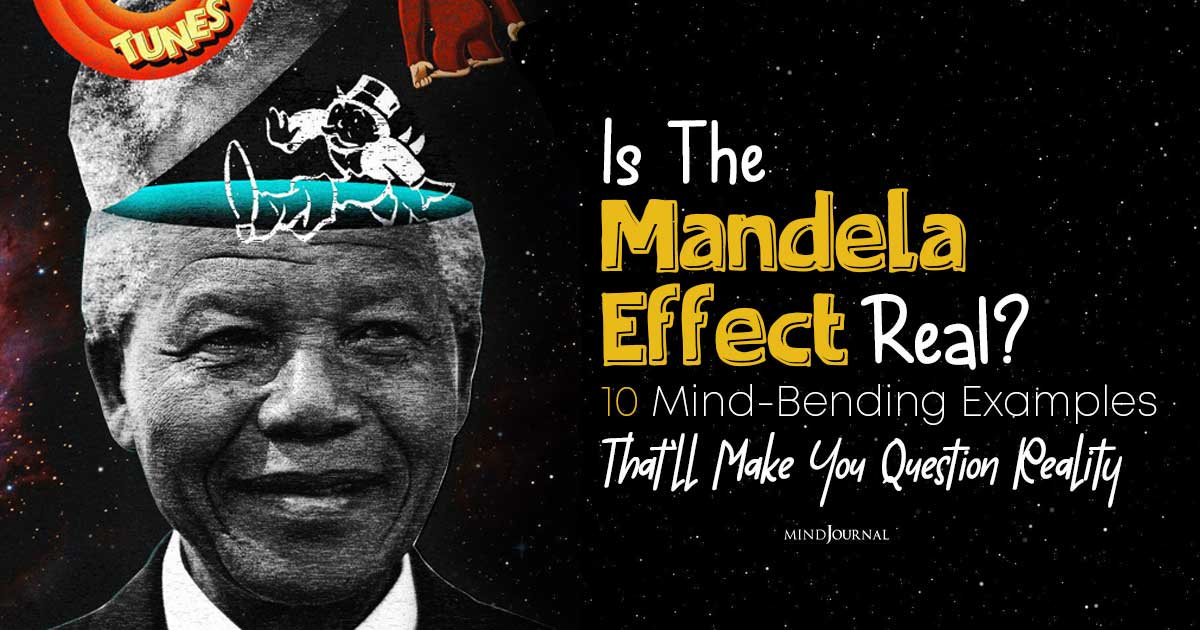
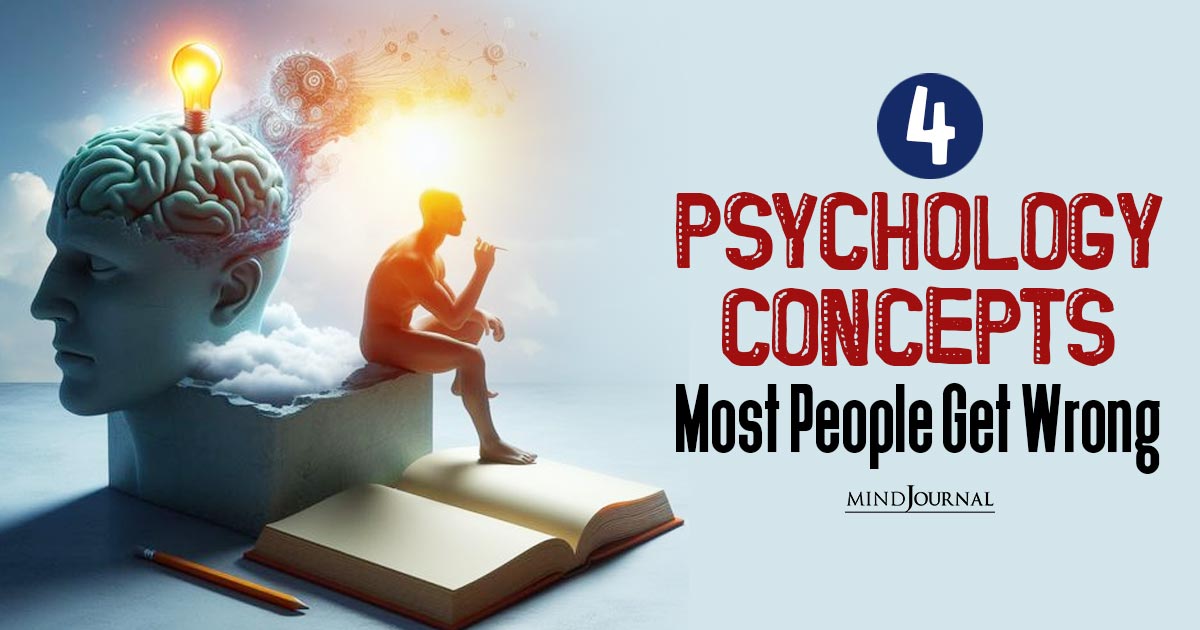

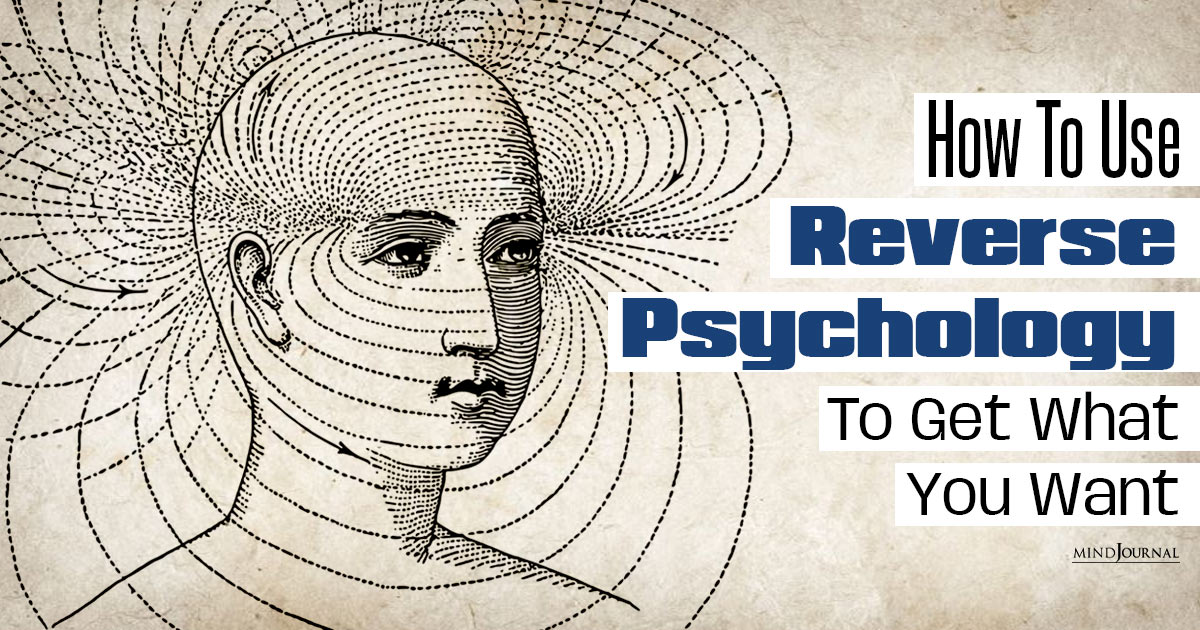


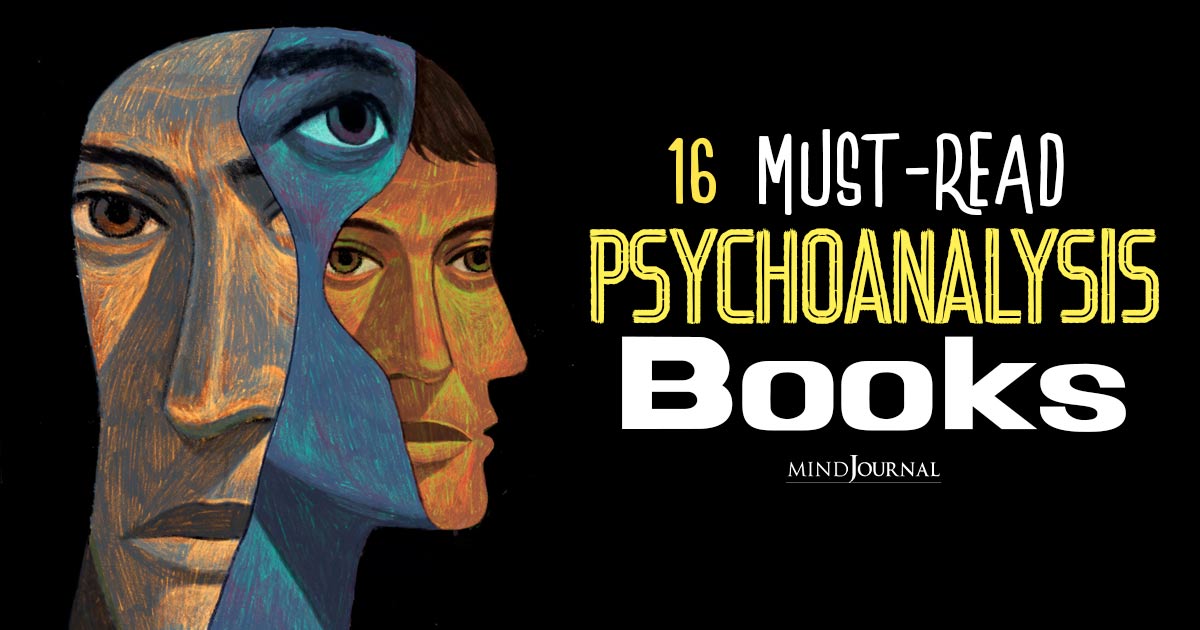
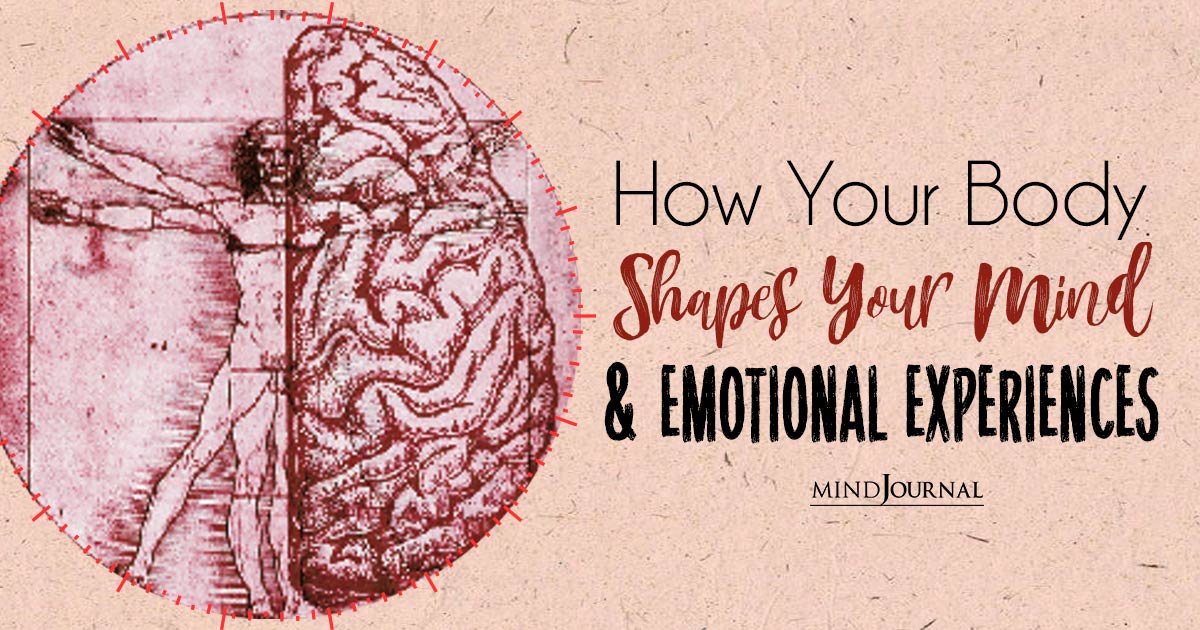
Leave a Reply
You must be logged in to post a comment.